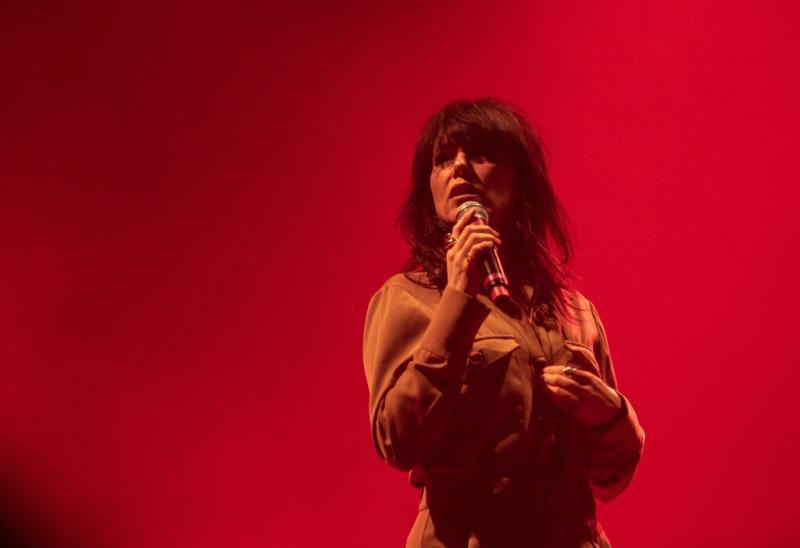Imagining Ireland, Barbican review - raising women's voices | reviews, news & interviews
Imagining Ireland, Barbican review - raising women's voices
Imagining Ireland, Barbican review - raising women's voices
Imelda May heads an eclectic line-up to reimagine an Ireland beyond the old patriarchies

Recent politics surround the EU and nationhood, fantasies of Irish Sea bridges and trading borders more porous than limestone have revived the granular rub between Eire and Britain, and the Celtic Tiger cool of the Nineties is a history module these days.
Imagining Ireland, first mounted to mark the centenary of the Easter Rising back in 2016, the year of the Brexit referendum, has progressed from examining Anglo-Irish cultural relations to a more general examination of what Irish culture has to offer beyond the expected borders of trad tunes and ballads, mixing a wider cultural diversity into its representation of contemporary Irish culture. Last year’s Imagining Ireland at the Barbican looked at Irish life in England, with poets including Martina Evans and singers such as Lisa O’Neill and Radie Peat of Lankum stealing the limelight.
May's 'Molly Malone' reclaimed the honour and labour of Dublin's iconic street-food vendor
The latter two singers returned for this year’s edition, focused this year on women’s voices in Irish culture, with O’Neill all but stealing the show with her impassioned introduction and performance of Sinead O’Connor’s “Three Babies”, setting this most powerful song in the context of the mass graves of infants uncovered at Bon Secours Mother and Baby Home, and the history of the Mother and Baby homes that enabled the Church to take newborns from young women from the mid-17th century all the way to the 1990s. A mixture of the visceral and tightly controlled, her delivery of O’Connor’s song was devastating. Particularly for this reviewer, who was born in one such Mother and Baby home.
Last year, Peat and O’Neill performed together; for this year, Peat sang three solo songs, accompanying herself on electric guitar and later harmonium for Lankum's “The Granite Gaze” – also drawing on the infanticides the Church inflicted on the people of Ireland. Such dark matter required strong contrasts to support their weight, and that came with Derry's teen art-popper SOAK, and from fine prose readings by Deborah Levy, Sinéad Gleeson and Wendy Erskine. Zimbabwean-Irish spoken word artist Denise Chaila expanded the little hyphen that anchors life stories of dual citizenship into a mighty self-asserting cri de ceour. A contemporary classical ensemble of cellist Kate Ellis, pianist Eliza McCarthy, composer Linda Buckley and percussionist Emma King performed several pieces, including one where McCarthy appeared to be flossing her prepared piano’s strings to create superb analog sound abstractions.
Heading the line-up was Imelda May, performing her poems on stage for the first time (one memorable piece, “GBH”, eulogised the vibrator's divine assault and battery upon body and mind) and a handful of songs, closing with a beautiful account of “Molly Malone”, her performance reclaiming the honour and labour of Dublin’s iconic street-food vendor whose busty statue stands well-groped outside the Tourist Office on Suffolk Street.
The future of Arts Journalism
You can stop theartsdesk.com closing!
We urgently need financing to survive. Our fundraising drive has thus far raised £49,000 but we need to reach £100,000 or we will be forced to close. Please contribute here: https://gofund.me/c3f6033d
And if you can forward this information to anyone who might assist, we’d be grateful.

Subscribe to theartsdesk.com
Thank you for continuing to read our work on theartsdesk.com. For unlimited access to every article in its entirety, including our archive of more than 15,000 pieces, we're asking for £5 per month or £40 per year. We feel it's a very good deal, and hope you do too.
To take a subscription now simply click here.
And if you're looking for that extra gift for a friend or family member, why not treat them to a theartsdesk.com gift subscription?

Add comment